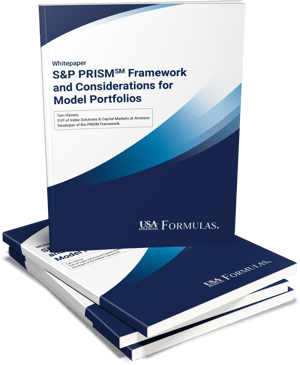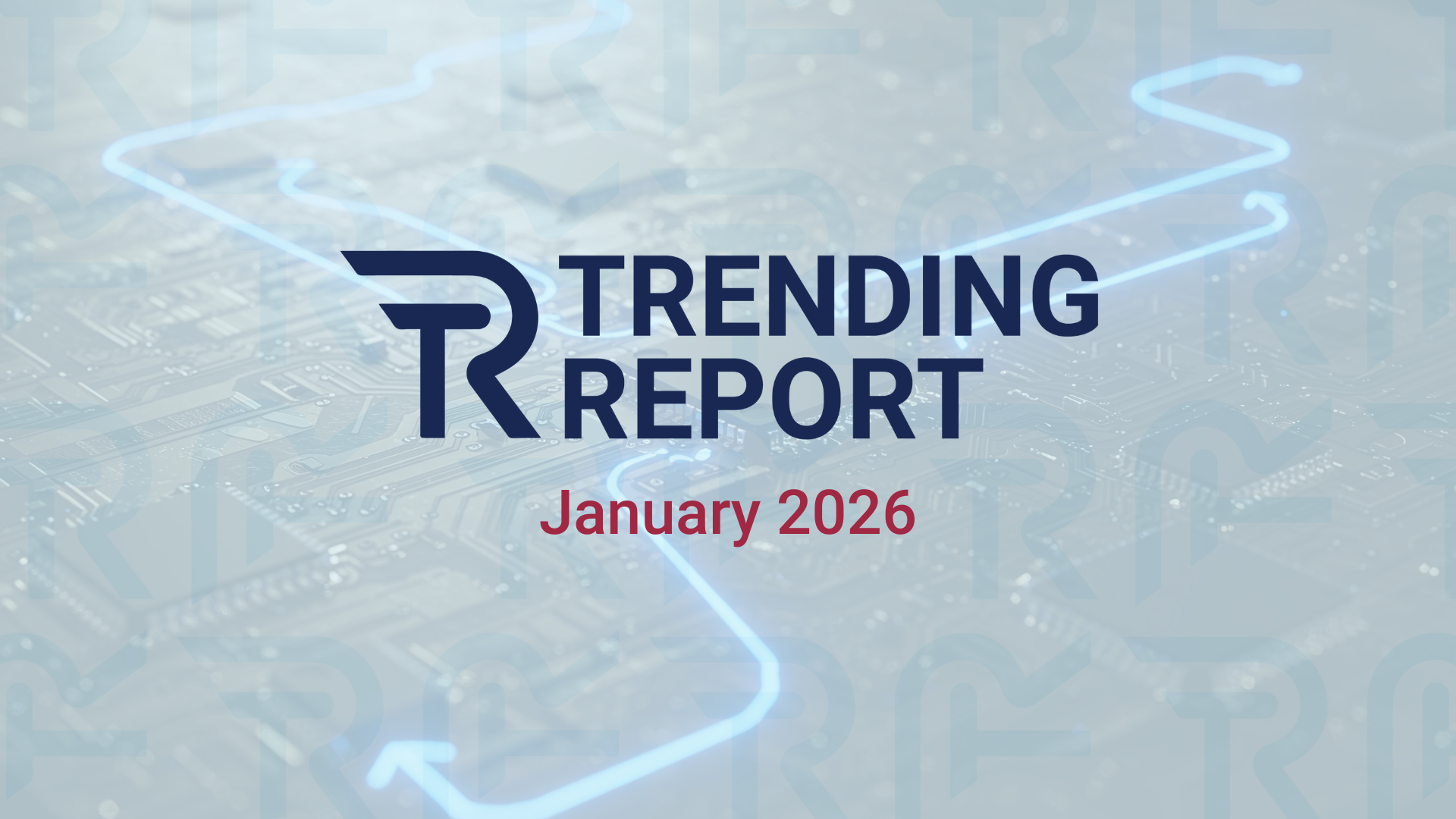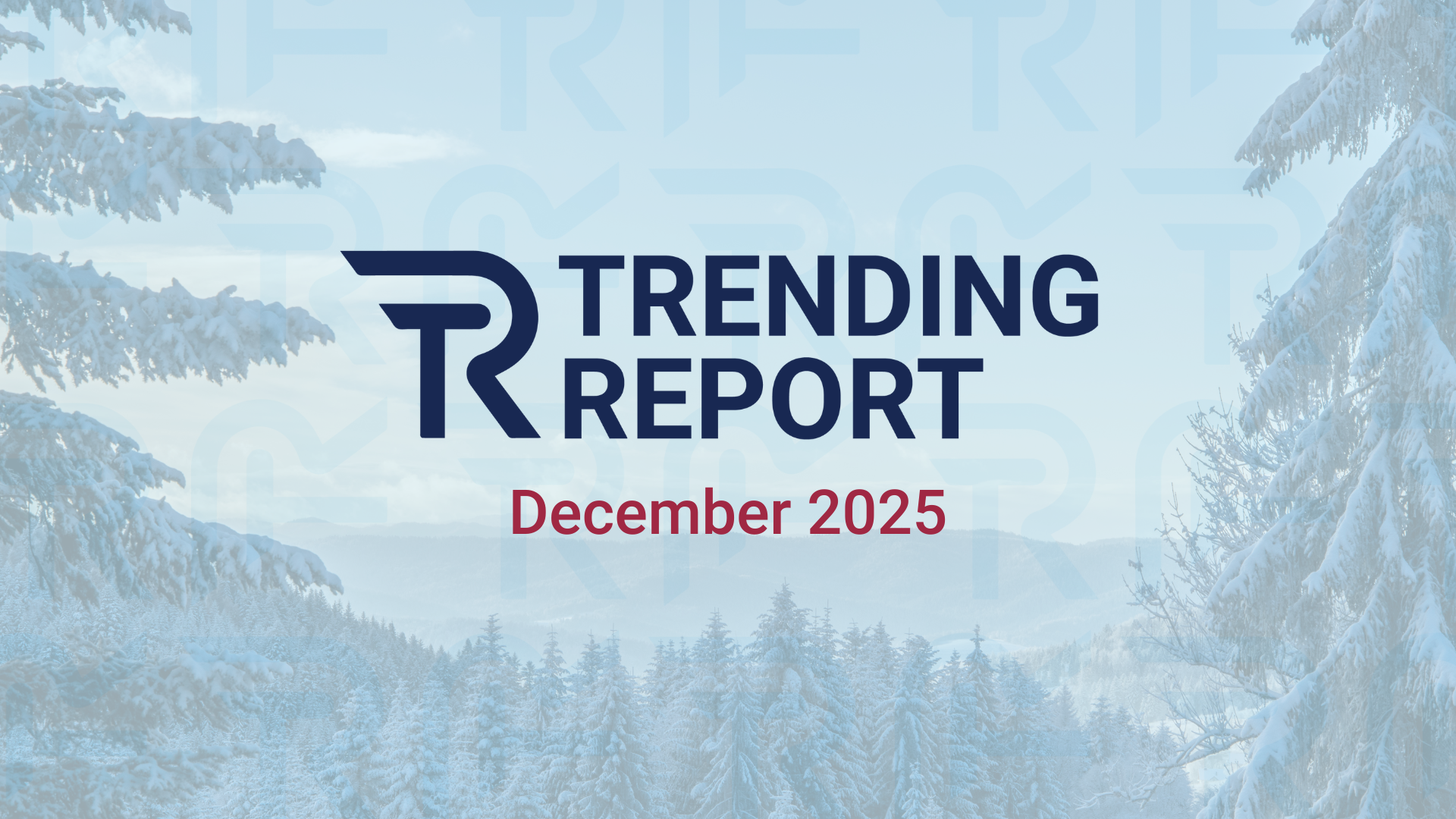Jun 7
2023
Wealth Management

The new S&P PRISM® ETF Tracker Index (PRISM) is designed to look beyond volatility,
evaluate a variety of market indicators, and strategically allocate for consistent performance.

Annexus and S&P Dow Jones Indices partnered in 2018 to develop the Performance Response Integrated Selection Method, or PRISM, Framework that was originally used to launch indices within the Fixed Index Annuity (FIA) and Index Universal Life (IUL) market. In 2022, S&P Dow Jones Indices and Annexus expanded their partnership to develop the S&P PRISM ETF Tracker Index, or the Index, that USA Financial Formulas licensed to develop the first multi-asset managed account that tracks an S&P index. The PRISM Framework provides a holistic view and an array of analytics to determine allocations. Just like a prism that shines an array of distinct colors, the PRISM Framework aims to provide over time an array of U.S. multi-asset allocations based upon a multi-indicator design.
The framework incorporates a collection of distinct and complementary indicators that dynamically
rebalances between equities, fixed income, commodities, and cash allocations.
This allows the PRISM Framework to:

In this episode, host Tyler Krzciok recaps the resilience of 2025 despite rising rates, trade tariffs, and a historic government shutdown. Discover which sectors drove S&P 500 growth, why commodities like gold and silver soared, and what themes underperformed. Then, look ahead to 2026: the indicators to watch, sectors with opportunity, and how top advisors are approaching client conversations. From AI and automation to diversification and formulaic investing, this episode is packed with insights to help you stay disciplined and focused on long-term success.

As 2025 comes to a close, the S&P 500 is up nearly 18% for the year—but what does that mean for your portfolio? In this December Trending Report, Kevin Roskam breaks down the year’s market performance, the role of trending strategies, and why diversification by time and philosophy matters more than ever. Learn how unemotional, disciplined investing helps you navigate volatility and stay focused on long-term success.

What if you could track an index, customize your portfolio, and reduce taxes - all at once? That’s the goal of direct indexing, a strategy gaining traction among advisors and investors alike.

In this episode, host Tyler Krzciok recaps the resilience of 2025 despite rising rates, trade tariffs, and a historic government shutdown. Discover which sectors drove S&P 500 growth, why commodities like gold and silver soared, and what themes underperformed. Then, look ahead to 2026: the indicators to watch, sectors with opportunity, and how top advisors are approaching client conversations. From AI and automation to diversification and formulaic investing, this episode is packed with insights to help you stay disciplined and focused on long-term success.

As 2025 comes to a close, the S&P 500 is up nearly 18% for the year—but what does that mean for your portfolio? In this December Trending Report, Kevin Roskam breaks down the year’s market performance, the role of trending strategies, and why diversification by time and philosophy matters more than ever. Learn how unemotional, disciplined investing helps you navigate volatility and stay focused on long-term success.

What if you could track an index, customize your portfolio, and reduce taxes - all at once? That’s the goal of direct indexing, a strategy gaining traction among advisors and investors alike.